Living with Epilepsy: Navigating Activities, Learning, and Memory
Posted on 12th February 2024
Epilepsy is the most common neurological condition affecting millions of people worldwide. It is characterised by having recurrent seizures, which can vary in type and severity. It's expected that 1 in 20 people will have a seizure at some point in their life, however as it doesn't keep recurring, it's not diagnosed as epilepsy.
For those living with epilepsy, there are often questions about what activities can be pursued, how epilepsy might impact learning, and whether it affects memory. In this blog post, we will explore these questions to provide a better understanding of living with epilepsy.
Lets get straight to it!
Can I Still Drive a Car if I have Epilepsy?
One of the most common concerns for individuals with epilepsy is whether they can engage in various activities without putting themselves at risk. The answer, in many cases, is yes. Epilepsy does not need to define your life or limit your experiences. However, it's essential to take some precautions and make informed choices.
Often a question is asked about being able to drive. In the UK, doctors have a legally obligation to inform the DVLA if you have epilepsy and whether or not you are medically fit to drive. There are many people with epilepsy who do drive and this is down to how well their epilepsy is controlled.
What Activities Can You Do with Epilepsy?
For activities of daily living, most people aren't affected until they have a seizure. For everyone with epilepsy, managing your lifestyle is very important and knowing your triggers is crucial. If you can manage your lifestyle and avoid triggers, most people can undertake the usual activities we all tend to undertake.
In terms of more varied activities like going to the cinema, exercising, mountain climbing and swimming; the answer will always be, is your epilepsy controlled and what are the triggers? If your triggers for having a seizure is stress, loud music or flashing lights, certain activities might be better avoiding, such as going to night clubs.
If you are newly diagnosed with epilepsy, it's crucial that you build up a diary of notes of how you feel, what activities you're doing, how much sleep have had overnight, what you've eaten etc for the first few months. This will allow you to identify activities or situations which trigger, or increase the risk of you having a seizure.
Does Epilepsy Make It Harder to Learn?
Epilepsy itself does not directly make learning harder. However, individuals with epilepsy may face specific challenges that can affect their educational journey:
Have a seizure during a class will no doubt impede your ability to learn. If it is a 'major' seizure, you'll need to rest afterwards and may need to return home, missing the rest of that school day. For some people, they have absent seizures which means they will miss parts of conversations or instructions, which will affect their ability to learn.
If you are epileptic, regardless of the type of seizure, your teachers and/or lectures must be informed. This will also allow them to respond appropriately if you have a seizure, but also keep an eye on you to ensure you're safe during the lesson.
Unfortunately some medication side-effects can have an impact on people's ability to concentrate, and therefore learn. You can discuss these potential effects with your healthcare provider, and consider adjusting your treatment plan if necessary.
Each person with epilepsy is unique, and their experiences with learning will vary. Some may excel academically, while others may face more challenges. The key is to understand your specific needs and advocate for the necessary support through your doctor or epilepsy specialist.

Conclusion
Living with epilepsy presents unique challenges, but it should not deter individuals from pursuing their goals, engaging in activities, or seeking an education. With proper management, support, and understanding, people with epilepsy can lead fulfilling lives and overcome the potential obstacles to learning and memory. Remember that epilepsy affects each person differently, so working closely with healthcare professionals and support networks is crucial to navigating the condition successfully.

We hope this has been useful for you and answered any queries or concerns you've had about epilepsy for you.
Free feel to check out our other blogs for more information about a whole range of topics.
If you would like some training on epilepsy, book yourself on one of our face to face Epilepsy Awareness training courses or on one of our e-learning Epilepsy Awareness courses.
Care Planning & Risk Assessment Course

Care planning and risk assessing is an essential part of delivering any care, especially culturally appropriate care. Click the link below to head to our course page!
Epilepsy Awareness Training Course

A seizure can easily become a medical emergency, knowing what to do is essential to being able to support someone in their moment of need.
Person Centered Care & Dignity

If you would like training on the most essential area of care, this course is for you. Transform your staff's understanding and develop them to be able to deliver culturally appropriate care.
Tagged as: Epilepsy
Share this post:






